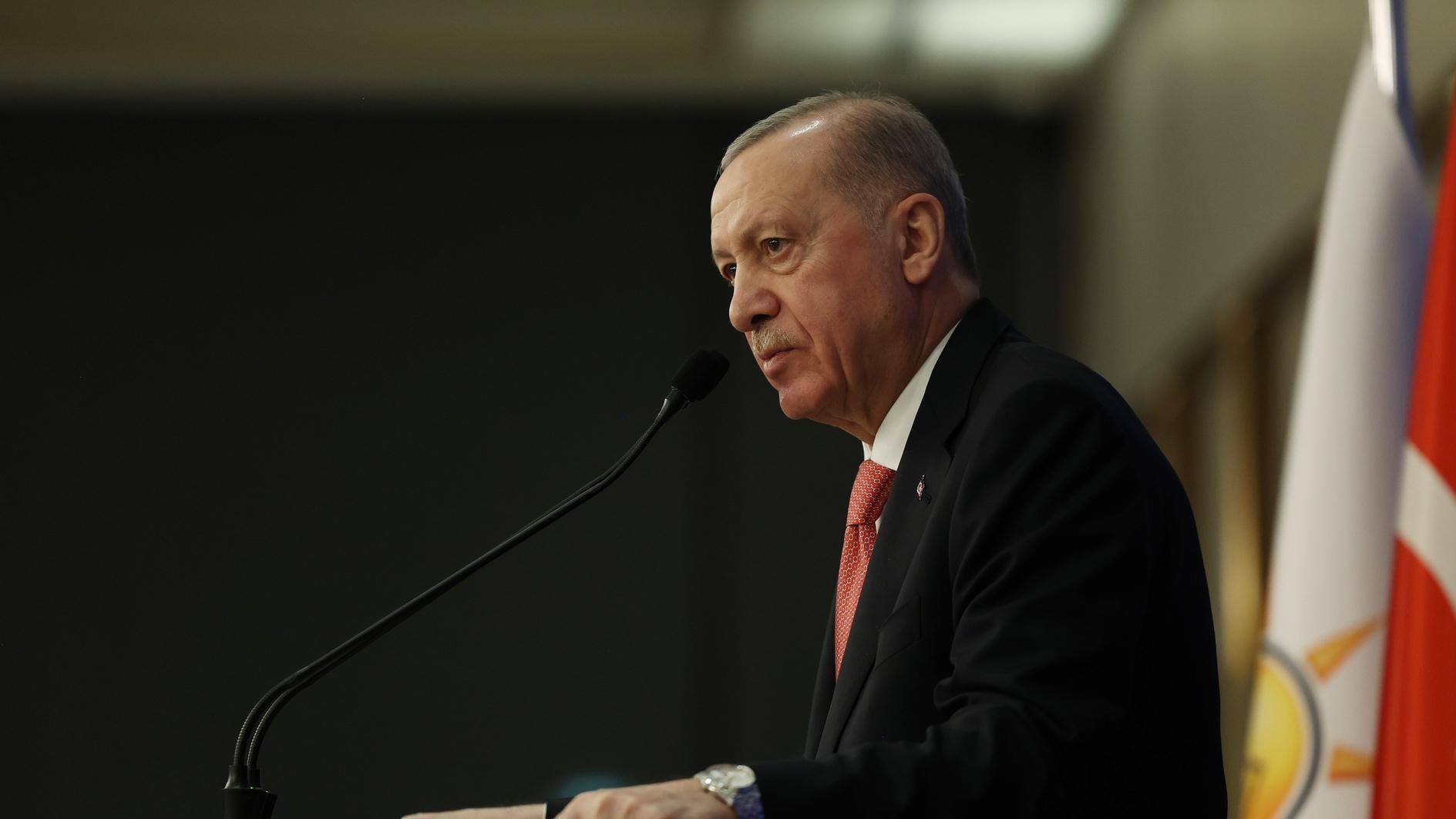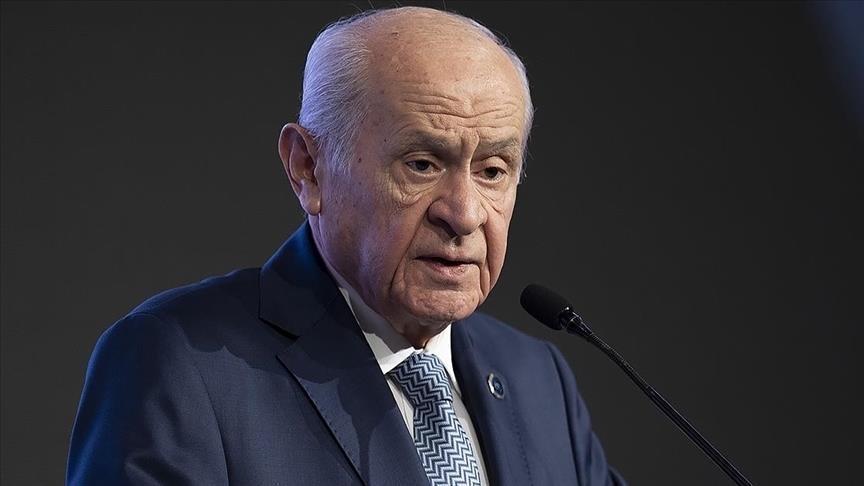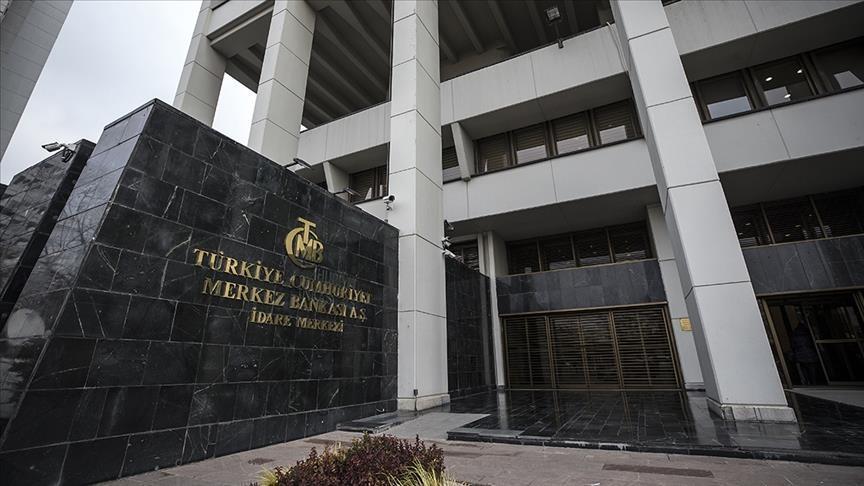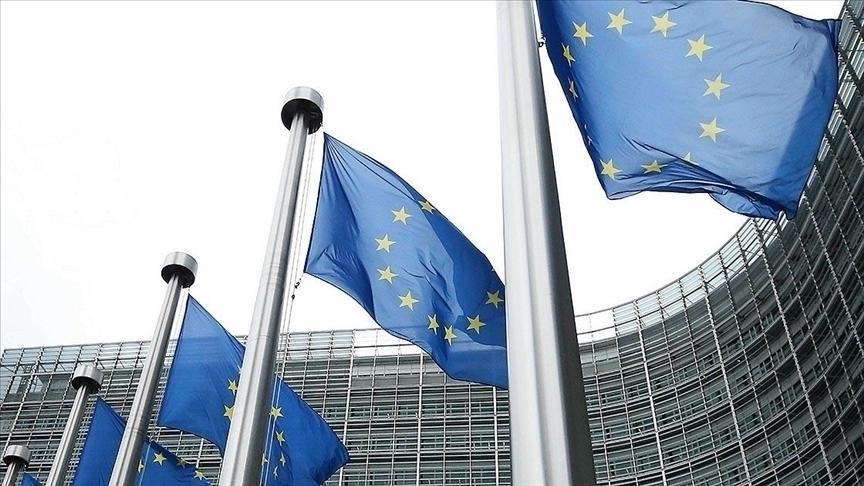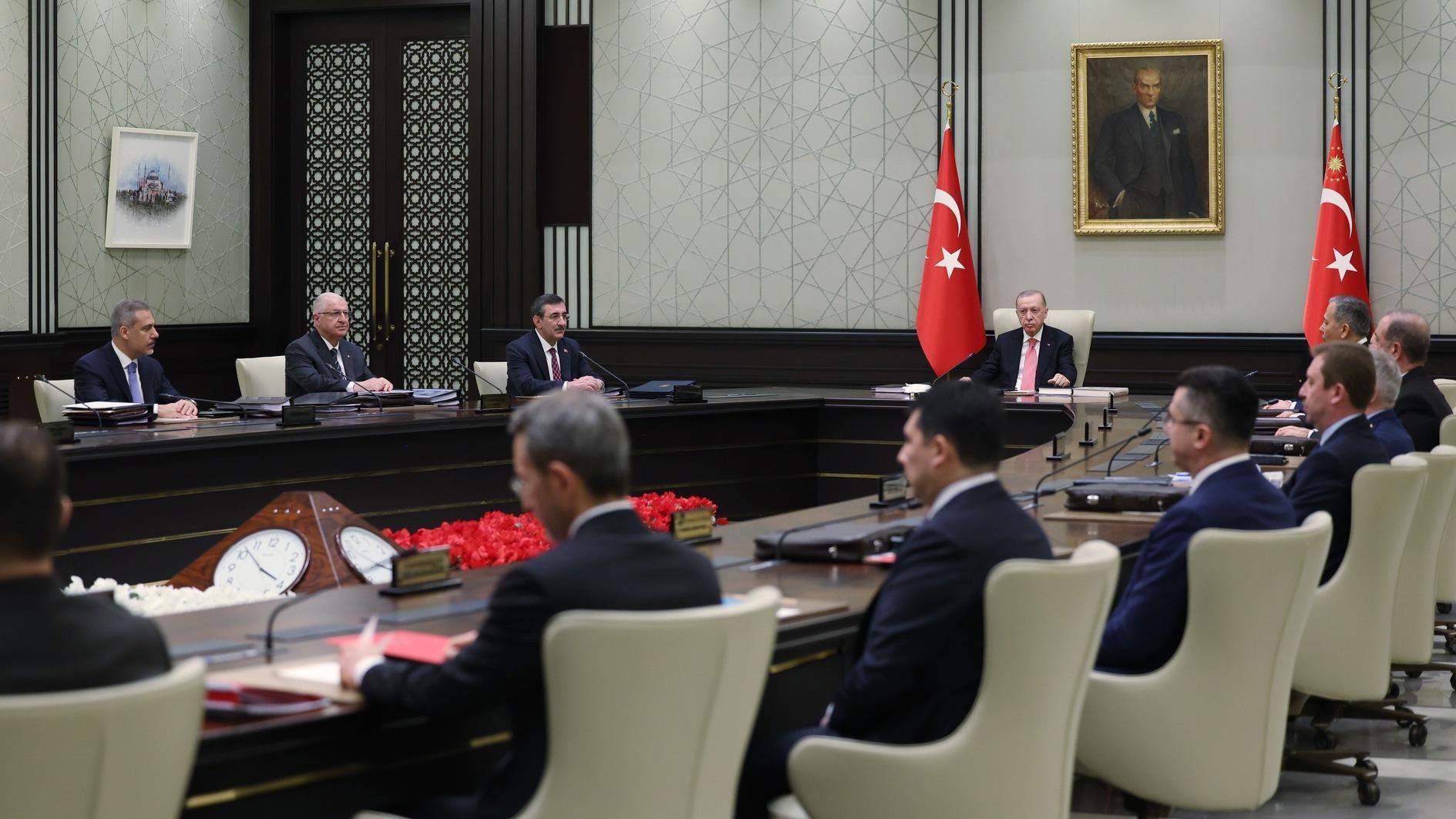Russia slams EU over rights
MOSCOW / WASHINGTON
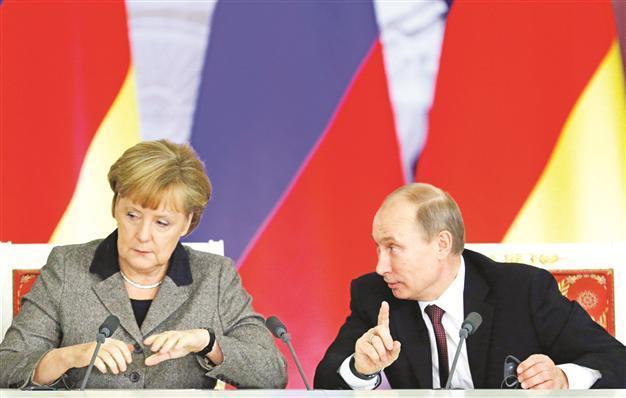
Russian President Vladimir Putin (R) speaks to German Chancellor Angela Merkel after a signing ceremony during a Russian-German business forum at the Kremlin Palace in this November photo. Russia’s new report has accused Germany of not giving more television airtime to the opposition. AP photo
Russia, which has often been criticized over human rights by the EU, hit back with its own report on the rights situation in the EU, saying it was plagued by racism, police abuse and neo-Nazism.“Although the EU and its members traditionally declare their commitment to the protection and promotion of human rights both on the national and international levels, the situation in this sphere in the EU is still far from perfect,” opened the 66-page report.
The report says Moscow’s goal is to “draw the attention of both EU member states and EU supranational bodies to serious problems at their home.”
“Russia is ready for a dialogue of equals with the EU on human rights and democratic development,” it added, according to Agence France-Presse. The document, published on the Foreign Ministry’s website, gives an overview of the rights situation in each of the EU’s 27 member countries, listing as among the most pressing problems “a steady growth of xenophobia, racism, violent nationalism and neo-Nazism, violation of rights of minorities, prisoners, refugees, migrants, and persons with mental illnesses.”
“All this is in an obvious contradiction with the EU claims of being the model and often the ‘supreme arbiter’ as far as human rights and democratic freedoms are concerned,” it said.
‘Ireland: satisfactory’
In the report, Germany is accused of human rights shortcomings including giving more television airtime to the ruling party than to the opposition. France is accused of violating the rights of the Roma, police abuse against immigrants and maintaining dirty and overcrowded prisons.
Britain, among other alleged abuses, is accused of an increase in discrimination and racism, including in public officials’ remarks, and a campaign of “persecution” against homophobes. But the report singles out other countries for praise, including Ireland, where “in general, the human rights situation... can be described as satisfactory,” it says.
The EU voiced concern over new laws sharply criticized by local activists that expanded the definition of high treason and forced groups that receive international funding to register as “foreign agents,” a move seen as a throwback to Soviet times.
Magnitsky Act hits US ties
Russian President Vladimir Putin has also been criticized over a crackdown on protesters opposed to his return to the Kremlin for a third term in May, including the high-profile case of Pussy Riot. On another front, Russia has accused the U.S. of trying to start a new Cold War after Congress approved a controversial law, the so-called Magnitsky Act, which bans Russians linked to human rights abuses from entering America. Voting 92-4, the U.S. Senate approved establishing permanent normal trade relations with Russia, ending Cold War-era restrictions, but also requiring sanctions against anyone connected to Russian lawyer Sergei Magnitsky’s death.
The new legislation, which still needs to be signed by President Barack Obama, would compel the government to freeze the assets of and deny entry to anyone tied to the 2009 death in prison of the Russian anti-corruption lawyer Sergei Magnitsky.
Magnitsky was working for a Western firm who died in pre-trial jail at 37 in Moscow in 2009. Russia immediately called the action “a theater of the absurd” and vowed to retaliate.


